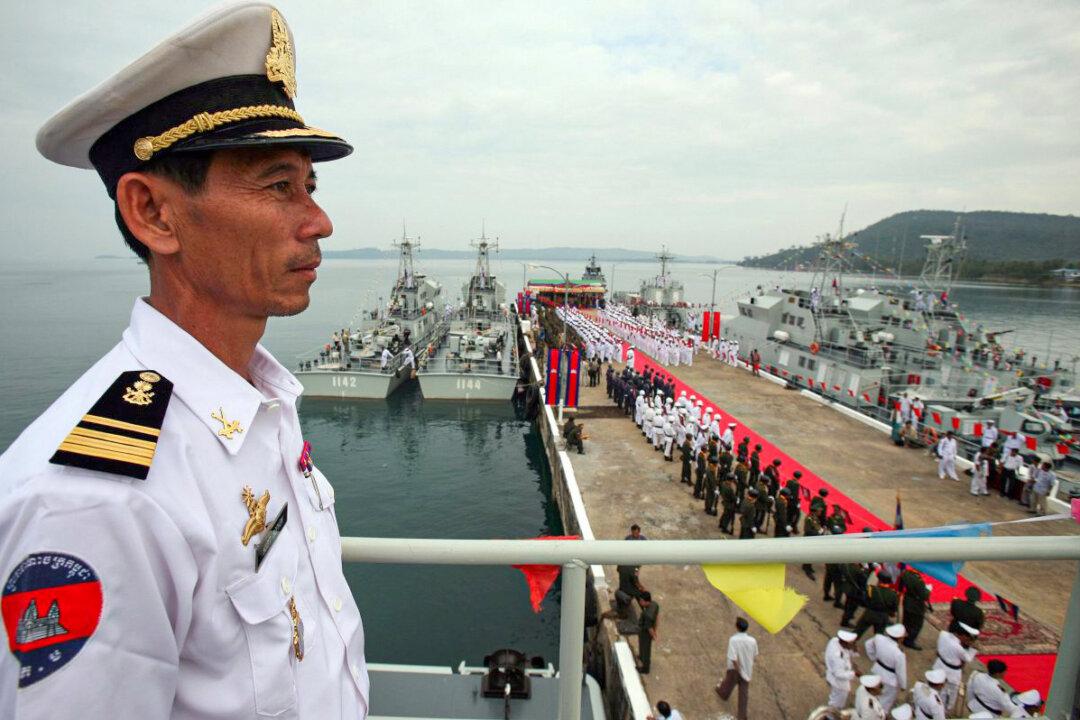Officials from China and Cambodia said that they had officially begun work on a major expansion to Cambodia’s largest naval base June 8. The project is being funded by China, and one official from the Chinese Communist Party (CCP) described it as evidence of the two nations’ “iron-clad partnership.”
The announcement is likely to ruffle feathers among the American national security community, which has issued warnings since 2019 that Cambodia and China had drafted a secret pact that would guarantee China unfettered military access to the port upon its completion, which sits on the Gulf of Thailand.




